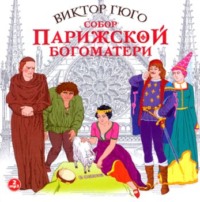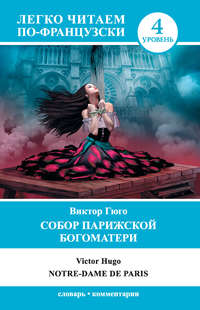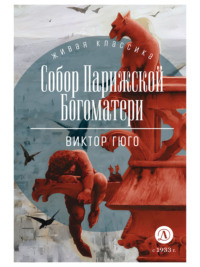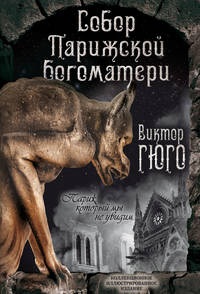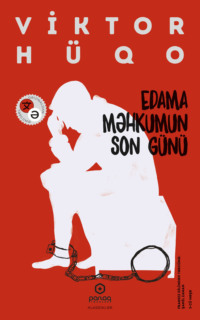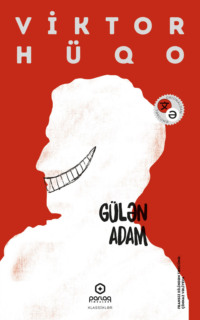 полная версия
полная версияLes Misérables, v. 4
And after this burst of eloquence Grantaire had a burst of coughing, which was well deserved.
"Talking of a revolution," said Joly, "it seebs that Barius is certaidly in love."
"Do you know with whom?" Laigle asked.
"Do."
"No?"
"Do, I tell you."
"The loves of Marius!" Grantaire exclaimed, "I can see them from here. Marius is a fog and will have found a vapor. Marius is of the poetic race. Who says poet says madman. Tymbræus Apollo. Marius and his Marie, or his Maria, or his Mariette, or his Marion, must be a funny brace of lovers. I can fancy what it is: ecstasies in which kissing is forgotten. Chaste on earth but connected in the infinitude. They are souls that have feelings, and they sleep together in the stars."
Grantaire was attacking his second bottle, and perhaps his second harangue, when a new head emerged from the staircase hatchway. It was a boy under ten years of age, ragged, very short and yellow, with a bull-dog face, a quick eye, and an enormous head of hair; he was dripping with wet, but seemed happy. The lad choosing without hesitating among the three, though he knew none of them, addressed Laigle of Meaux.
"Are you Monsieur Bossuet?" he asked.
"I am called so," Laigle replied; "what do you want?"
"A big blonde on the boulevard said to me, 'Do you know Mother Hucheloup's?' I said,' Yes, Rue Chanvrerie, the widow of the old buffer,' He says to me, 'Go there; you will find Monsieur Bossuet there, and say to him from me, A – B – C.' I suppose it's a trick played you, eh? He gave me ten sous."
"Joly, lend me ten sous," said Laigle; and turning to Grantaire, "Grantaire, lend me ten sous."
This made twenty sous, which Laigle gave the lad. "Thank you, sir," he said.
"What is your name?" Laigle asked.
"Navet, Gavroche's friend."
"Stay with us," Laigle said.
"Breakfast with us," Grantaire added.
The lad replied, "I can't, for I belong to the procession, and have to cry, 'Down with Polignac!'"
And, drawing his foot slowly after him, which is the most respectful of bows possible, he went away. When he was gone, Grantaire remarked, —
"That is the pure gamin, and there are many varieties in the gamin genus. The notary-gamin is called 'skip-the-gutter;' the cook-gamin is called 'scullion;' the baker-gamin is called 'paper-cap;' the footman-gamin is called 'tiger;' the sailor-gamin is called 'cabin-boy;' the soldier-gamin is called 'drummer-boy;' the painter-gamin is called 'dauber;' the tradesman-gamin is called 'errand-boy;' the courtier-gamin is called 'favorite;' the royal-gamin is called 'dauphin;' and the divine-gamin is called 'Bambino.'"
In the mean while Laigle meditated, and said in a low voice, —
"A – B – C, that is to say, funeral of General Lamarque."
"The tall, fair man," Grantaire observed, "is Enjolras, who has sent to warn you."
"Shall we go?" asked Bossuet.
"It's raiding," said Joly; "I have sworn to go through fire but dot through water, and I do dot wish to bake by cold worse."
"I shall stay here," Grantaire remarked; "I prefer a breakfast to a hearse."
"Conclusion, we remain," Laigle continued; "in that case let us drink. Besides, we may miss the funeral without missing the row."
"Ah, the row!" cried Joly, "I'b id that."
Laigle rubbed his hands.
"So the revolution of 1830 is going to begin over again. Indeed, it disturbs people by brushing against them."
"I do not care a rap for your revolution," Grantaire remarked, "and I do not execrate the present Government, for it is the crown tempered by the cotton nightcap, a sceptre terminating in an umbrella. In such weather as this Louis Philippe might use his royalty for two objects, – stretch out the sceptre-end against the people, and open the umbrella-end against the sky."
The room was dark, and heavy clouds completely veiled the daylight. There was no one in the wine-shop or in the streets, for everybody had gone "to see the events."
"Is it midday or midnight?" Bossuet asked; "I can see nothing; bring a candle, Gibelotte."
Grantaire was drinking sorrowfully.
"Enjolras disdains me," he muttered. "Enjolras said to himself, 'Joly is ill and Grantaire is drunk,' and so he sent Navet to Bossuet. And yet, if he had fetched me, I would have followed him. All the worse for Enjolras! I will not go to his funeral."
This resolution formed, Bousset, Grantaire, and Joly did not stir from the wine-shop, and at about 2 P.M. the table at which they sat was covered with empty bottles. Two candles burned on it, one in a perfectly green copper candlestick, the other in the neck of a cracked water-bottle. Grantaire had led Joly and Bossuet to wine, and Bossuet and Joly had brought Grantaire back to joy. As for Grantaire, he gave up wine at midday, as a poor inspirer of illusions. Wine is not particularly valued by serious sots, for in ebriety there is black magic and white magic, and wine is only the white magic. Grantaire was an adventurous drinker of dreams. The blackness of a formidable intoxication yawning before him, far from arresting, attracted him, and he had given up bottles and taken to the dram-glass, which is an abyss. Not having at hand either opium or hashish, and wishing to fill his brain with darkness, he turned to that frightful mixture of brandy, stout, and absinthe, which produces such terrible lethargies. Of these three vapors, beer, brandy, and absinthe, the lead of the soul is made: they are three darknesses in which the celestial butterfly is drowned; and there are formed in a membraneous smoke, vaguely condensed into a bat's wing, three dumb furies, Nightmare, Night, and Death, which hover over the sleeping Psyche. Grantaire had not yet reached that phase; far from it: he was prodigiously gay, and Bossuet and Joly kept even with him. Grantaire added to the eccentric accentuation of words and ideas the vagary of gestures; he laid his left hand on his knee with a dignified air, and with his neckcloth unloosed, straddling his stool, and with his full glass in his right hand, he threw these solemn words at the stout servant-girl Matelote: —
"Open the gates of the Palace! Let every man belong to the Académie Française, and have the right of embracing Madame Hucheloup! Let us drink."
And turning to the landlady, he added, —
"Antique female, consecrated by custom, approach, that I may contemplate thee."
And Joly exclaimed, —
"Batelote and Gibelotte, don't give Grantaire adybore drink. He is spending a frightful sum, and odly since this borning has devoured in shabeful prodigality two francs, dwenty-five centibes."
And Grantaire went on, —
"Who has unhooked the stars without my leave, in order to place them on the table in lieu of candles?"
Bossuet, who was very drunk, had retained his calmness, and was sitting on the sill of the open window, letting the rain drench his back, while he gazed at his two friends. All at once he heard behind him a tumult, hurried footsteps, and shouts of "To arms!" He turned, and noticed in the Rue St. Denis, at the end of the Rue Chanvrerie, Enjolras passing, carbine in hand, Gavroche with his pistol, Feuilly with his sabre, Courfeyrac with his sword, Jean Prouvaire with his musquetoon, Combeferre with his gun, Bahorel with his, and the whole armed and stormy band that followed them. The Rue de la Chanvrerie was not a pistol-shot in length, so Bossuet improvised a speaking-trumpet with his two hands round his mouth, and shouted, —
"Courfeyrac! Courfeyrac! hilloh!"
Courfeyrac heard the summons, perceived Bossuet, and walked a few steps down the Rue de la Chanvrerie, exclaiming, "What do you want?" which was crossed by a "Where are you going?"
"To make a barricade," Courfeyrac answered.
"Well, why not make it here? the spot is good."
"That is true, Eagle," Courfeyrac remarked.
And at a sign from Courfeyrac the mob rushed into the Rue de la Chanvrerie.
CHAPTER III
THE NIGHT BEGINS TO FALL ON GRANTAIRE
The ground was, in fact, admirably suited; the entrance of the street was wide, the end narrowed, and, like a blind alley, Corinth formed a contraction in it, the Rue de Mondétour could be easily barred right and left, and no attack was possible save by the Rue St. Denis; that is to say, from the front and in the open. Bossuet drunk had had the inspiration of Hannibal sober. At the sound of the band rushing on, terror seized on the whole street, and not a passer-by but disappeared. More quickly than a flash of lightning, shops, stalls, gates, doors, Venetian blinds, and shutters of every size were shut from the ground-floor to the roofs, at the end, on the right, and on the left. An old terrified woman fixed up a mattress before her window with clothes-props, in order to deaden the musketry, and the public-house alone remained open, – and for an excellent reason, because the insurgents had rushed into it.
"Oh Lord! oh Lord!" Mame Hucheloup sighed.
Bossuet ran down to meet Courfeyrac, and Joly, who had gone to the window, shouted, —
"Courfeyrac, you ought to have brought an umbrella. You will catch cold."
In a few minutes twenty iron bars were pulled down from the railings in front of the inn, and ten yards of pavement dug up. Gavroche and Bahorel seized, as it passed, the truck of a lime-dealer of the name of Anceau, and found in it three barrels of lime, which they placed under the piles of paving-stones; Enjolras had raised the cellar-flap, and all Mame Hucheloup's empty casks went to join the barrels of lime; Feuilly, with his fingers accustomed to illumine the delicate sticks of fans, reinforced the barrels and the trucks with two massive piles of stones, – rough stones, improvised like the rest, and taken from no one knew where. The supporting shores were pulled away from the frontage of an adjoining house, and laid on the casks. When Courfeyrac and Bossuet turned round, one half the street was already barred by a rampart taller than a man, for there is nothing like the hand of the people to build up anything that is built by demolishing. Matelote and Gibelotte were mixed up with the workmen, and the latter went backwards and forwards, loaded with rubbish, and her lassitude helped at the barricade. She served paving-stones, as she would have served wine, with a sleepy look. An omnibus drawn by two white horses passed the end of the street; Bossuet jumped over the stones, ran up, stopped the driver, ordered the passengers to get out, offered his hand to "the ladies," dismissed the conductor, and returned, pulling the horses on by the bridles.
"Omnibuses," he said, "must not pass before Corinth. Non licet omnibus adire Corinthum."
A moment after, the unharnessed horses were straggling down the Rue Mondétour, and the omnibus lying on its side completed the barricade. Mame Hucheloup, quite upset, had sought refuge on the first-floor; her eyes were wandering and looked without seeing, and her cries of alarm dared not issue from her throat.
"It is the end of the world," she muttered.
Joly deposited a kiss on Mame Hucheloup's fat, red, wrinkled neck, and said to Grantaire, "My dear fellow, I have always considered a woman's neck an infinitely delicate thing." But Grantaire had reached the highest regions of dithyramb. When Matelote came up to the first-floor, he seized her round the waist and burst into loud peals of laughter at the window.
"Matelote is ugly," he cried; "Matelote is the ideal of ugliness; she is a chimera. Here is the secret of her birth, – a Gothic Pygmalion, who was carving cathedral gargoyles, fell in love on a fine morning with the most horrible of them. He implored love to animate it, and this produced Matelote. Look at her, citizens! She has chromate-of-lead-colored hair, like Titian's mistress, and is a good girl; I will answer that she fights well, for every good girl contains a hero. As for Mother Hucheloup, she is an old brave. Look at her mustachios; she inherited them from her husband. She will fight too, and the couple will terrify the whole of the suburbs. Comrades, we will overthrow the Government so truly as there are fifteen intermediate acids between margaric acid and formic acid; however, it is a matter of perfect indifference to me. My father always detested me because I could not understand mathematics; I only understand love and liberty. I am Grantaire, the good fellow; never having had any money, I have not grown accustomed to it, and for that reason have never wanted it; but, had I been rich, there would be no poor left! You would have seen! Oh, if good hearts had large purses, how much better things would be! I can imagine the Saviour with Rothschild's fortune! What good he would do! Matelote, embrace me! You are voluptuous and timid; you have cheeks that claim the kiss of a sister, and lips that claim the kiss of a lover!"
"Hold your tongue, barrel!" Courfeyrac said. Grantaire replied, —
"I am the Capitoul and master of the Floral games!"
Enjolras, who was standing on the top of the barricade, gun in hand, raised his handsome, stern face. Enjolras, as we know, blended the Spartan with the Puritan; he would have died at Thermopylæ with Leonidas, and burned Drogheda with Cromwell.
"Grantaire," he cried, "go and sleep off your wine elsewhere; this is the place for intoxication, and not for drunkenness. Do not dishonor the barricade."
These stinging words produced on Grantaire a singular effect, and it seemed as if he had received a glass of cold water in his face. He appeared suddenly sobered, sat down near the window, gazed at Enjolras with inexpressible tenderness, and said to him, —
"Let me sleep here."
"Go and sleep elsewhere," Enjolras cried.
But Grantaire, still fixing on him his tender and misty eyes, answered, —
"Let me sleep here till I die here."
Enjolras looked at him disdainfully.
"Grantaire, you are incapable of believing, thinking, wishing, living, and dying."
Grantaire replied in a grave voice, —
"You will see."
He stammered a few more unintelligible words, then his head fell noisily on the table, and – as is the usual effect of the second period of ebriety into which Enjolras had roughly and suddenly thrust him – a moment later he was asleep.
CHAPTER IV
AN ENDEAVOR TO CONSOLE THE WIDOW HUCHELOUP
Bahorel, delighted with the barricade, exclaimed, "How well the street looks décolleté!"
Courfeyrac, while gradually demolishing the public-house, tried to console the widowed landlady.
"Mother Hucheloup, were you not complaining the other day that you had been summoned by the police, because Gibelotte shook a counterpane out of the window?"
"Yes, my good Monsieur Courfeyrac. Ah! good gracious! are you going to put that table too in your horror? Yes, and the Government also condemned me to a fine of one hundred francs on account of a flower-pot that fell out of the garret into the street. Is that not abominable?"
"Well, Mother Hucheloup, we are going to avenge you."
Mother Hucheloup did not exactly see the advantage accruing to her from the reparation made her. She was satisfied after the fashion of the Arab woman who, having received a box on the ears from her husband, went to complain to her father, crying vengeance, and saying, "Father, you owe my husband affront for affront." The father asked, "On which cheek did you receive the blow?" "On the left cheek." The father boxed her right cheek, and said, "Now you must be satisfied. Go and tell your husband that he buffeted my daughter, but I have buffeted his wife." The rain had ceased, and recruits began to arrive. Artisans brought under their blouses a barrel of gunpowder, a hamper containing carboys of vitriol, two or three carnival torches, and a basket full of lamps, "remaining from the king's birthday," which was quite recent, as it was celebrated on May 1. It was said that this ammunition was sent by a grocer in the Faubourg St. Antoine named Pépin. The only lantern in the Rue de la Chanvrerie, and all those in the surrounding streets, were broken. Enjolras, Combeferre, and Courfeyrac directed everything, and now two barricades were erected simultaneously, both of which were supported by Corinth and formed a square; the larger one closed the Rue de la Chanvrerie, and the smaller the Rue Mondétour on the side of the Rue du Cygne. This latter barricade, which was very narrow, was merely made of barrels and paving-stones. There were about fifty workmen there, of whom three were armed with guns, for on the road they had borrowed a gunsmith's entire stock.
Nothing could be stranger or more motley than this group: one had a sleeved waistcoat, a cavalry sabre, and a pair of holster pistols; another was in shirt-sleeves, with a round hat, and a powder-flask hung at his side; while a third was cuirassed with nine sheets of gray paper, and was armed with a saddler's awl. There was one who shouted, "Let us exterminate to the last, and die on the point of our bayonet!" This man had no bayonet. Another displayed over his coat the belts and pouch of a National Guard, with these words sewn in red worsted on the cover, "Public order." There were many muskets, bearing the numbers of legions, few hats, no neckties, a great many bare arms, and a few pikes; add to this all ages, all faces, short pale youths, and bronzed laborers at the docks. All were in a hurry, and while assisting each other, talked about the possible chances, – that they were sure of one regiment, and Paris would rise. There were terrible remarks, with which a sort of cordial joviality was mingled; they might have been taken for brothers, though they did not know one another's names. Great dangers have this beauty about them, that they throw light on the fraternity of strangers.
A fire was lighted in the kitchen, and men were melting in a bullet-mould, bowls, spoons, forks, and all the pewter articles of the public-house. They drank while doing this, and caps and slugs lay pell-mell on the table with glasses of wine. In the billiard-room Mame Hucheloup, Matelote, and Gibelotte, variously affected by terror, – as one was brutalized by it, another had her breath stopped, while the third was awakened, – were tearing up old sheets and making lint; three insurgents helped them, – three hairy, bearded, and moustached fellows, who pulled the linen asunder with the fingers of a sempstress and made them tremble. The tall man, whom Courfeyrac, Combeferre, and Enjolras had noticed as he joined the band at the corner of the Rue des Billetes, was working at the small barricade and making himself useful; Gavroche was working at the large one; and as for the young man who had waited for Courfeyrac at his lodgings and asked after M. Marius, he disappeared just about the time when the omnibus was overthrown.
Gavroche, who was perfectly radiant, had taken the arrangements on himself; he came, went, ascended, descended, went up again, rustled and sparkled. He seemed to be there for the encouragement of all. Had he a spur? Certainly, in his misery. Had he wings? Certainly, in his joy. Gavroche was a whirlwind; he was seen incessantly, and constantly heard, and he filled the air, being everywhere at once. He was a sort of almost irritating ubiquity, and it was impossible to stop with him. The enormous barricade felt him on its crupper; he annoyed the idlers, excited the slothful, reanimated the fatigued, vexed the thoughtful, rendered some gay and gave others time to breathe, set some in a passion and all in motion; he piqued a student and stung a workman; he halted, then started again, flew over the turmoil and the efforts, leaped from one to the other, murmured, buzzed, and harassed the whole team; he was the fly of the immense revolutionary coach. Perpetual movement was in his little arms, and perpetual clamor in his little lungs.
"Push ahead; more paving-stones, more barrels, more vehicles! Where are there any? We want a hodload of plaster to stop up this hole. Your barricade is very small, and must mount. Put everything into it; smash up the house; a barricade is Mother Gibou's tea. Hilloh! there's a glass door."
This made the workmen exclaim, —
"A glass door! What would you have us do with that, tubercule?"
"Hercules yourselves," Gavroche retorted; "a glass door in a barricade is excellent, for though it does not prevent the attack, it makes it awkward to take it. Have you never boned apples over a wall on which there was broken glass? A glass door cuts the corns of the National Guards when they try to climb up the barricade. By Job! glass is treacherous. Well, you fellows have no very bright imagination."
He was furious with his useless pistol, and went from one to the other, saying, "A gun! I want a gun! Why don't you give me a gun?"
"A gun for you?" said Combeferre.
"Well, why not?" Gavroche answered; "I had one in 1830, when we quarrelled with Charles X."
Enjolras shrugged his shoulders.
"When all the men have guns we will give them to boys."
Gavroche turned firmly, and answered him, —
"If you are killed before me I will take yours."
"Gamin!" said Enjolras.
"Puppy!" said Gavroche.
A dandy lounging past the end of the street created a diversion; Gavroche shouted to him, —
"Come to us, young man! What, will you do nothing for your old country?"
The dandy fled.
CHAPTER V
PREPARATIONS
The journals of the day which stated that the barricade in the Rue de la Chanvrerie, that "almost impregnable fortress," as they called it, reached the level of a first-floor, are mistaken, for the truth is that it did not exceed an average height of six or seven feet. It was so built that the combatants could at will either disappear behind it or ascend to its crest by means of a quadruple row of paving-stones arranged like steps inside. Externally the front of the barricade, composed of piles of paving-stones and barrels, held together by joists and planks passed through the wheels of the truck and the omnibus, had a bristling and inextricable appearance. A gap, sufficiently wide for one man to pass, was left between the house-wall and the end of the barricade farthest from the wine-shop, so that a sortie was possible. The pole of the omnibus was held upright by ropes, and a red flag fixed to this pole floated over the barricade. The small Mondétour barricade, concealed behind the wine-shop, could not be seen, but the two barricades combined formed a real redoubt. Enjolras and Courfeyrac had not thought it advisable to barricade the other portion of the Rue Mondétour, which opens on to the Halles, as they doubtless wished to maintain a possible communication with the outside, and had but little fear of being attacked by the difficult and dangerous Rue des Prêcheurs. With the exception of this issue left free, which constituted what Folard would have called in a strategic style a boyau, and of the narrow passage in the Rue de la Chanvrerie, the interior of the barricade, in which the wine-shop formed a salient angle, presented an irregular quadrilateral enclosed on all sides. There was a space of twenty yards between the great barricade and the tall houses which formed the end of the street, so that it might be said that the barricade leaned against these houses, which were all inhabited, but closed from top to bottom.
All this labor was completed without any obstacle, in less than an hour, during which this handful of men had not seen a single bearskin-cap or bayonet. The few citizens who still ventured at this moment of riot into the Rue St. Denis took a glance into the Rue de la Chanvrerie, perceived the barricade, and doubled their pace. When the two barricades were completed and the flag was hoisted, a table was pulled from the wine-shop into the street, and Courfeyrac got upon it. Enjolras brought up the square chest, which Courfeyrac opened, and it proved to be full of cartridges. When they saw these cartridges the bravest trembled, and there was a moment's silence. Courfeyrac distributed the cartridges smilingly, and each received thirty: many had powder, and began making others with the bullets which had been cast; as for the powder barrel, it was on a separate table, near the door, and was held in reserve. The drum-beat call to arms, which was traversing the whole of Paris, did not cease, but in the end it had become a monotonous sound, to which they no longer paid any attention. This noise at one moment retired, at another came nearer, with lugubrious undulations. The guns and carbines were loaded all together, without precipitation and with a solemn gravity. Enjolras then stationed three sentries outside the barricades, one in the Rue de la Chanvrerie, the second in the Rue des Prêcheurs, the third at the corner of the Petite Truanderie. Then, when the barricades were built, the posts assigned, the guns loaded, the sentries set, the insurgents alone in these formidable streets, through which no one now passed, surrounded by dumb and, as it were, dead houses, in which no human movement palpitated, enveloped in the menacing darkness, in the midst of that silence and obscurity in which they felt something advancing, and which had something tragical and terrifying about it, isolated, armed, determined, and tranquil – waited.


